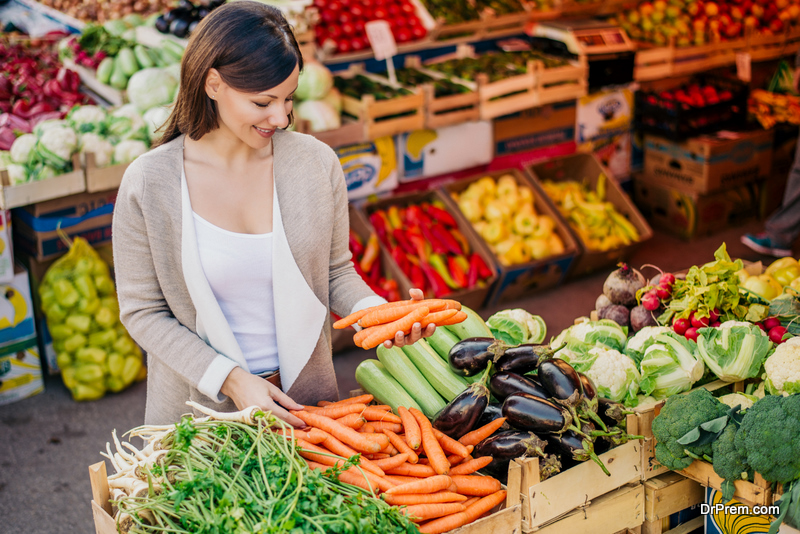Sadly, the food we all desire so much, i.e., tasty cheeseburgers and crispy French fries, aren’t exactly the eco-friendly food that we should be consuming. However, there are many useful ways using which you can easily switch your everyday diet into an eco-friendly one.
Therefore, today for your convenience, we’re going to discuss different ways to make a positive impact on mother nature effortlessly.
Let’s take a look at some of these ways which will transform your everyday diet into an eco-friendly one:
1. Maintain a Small Kitchen Garden
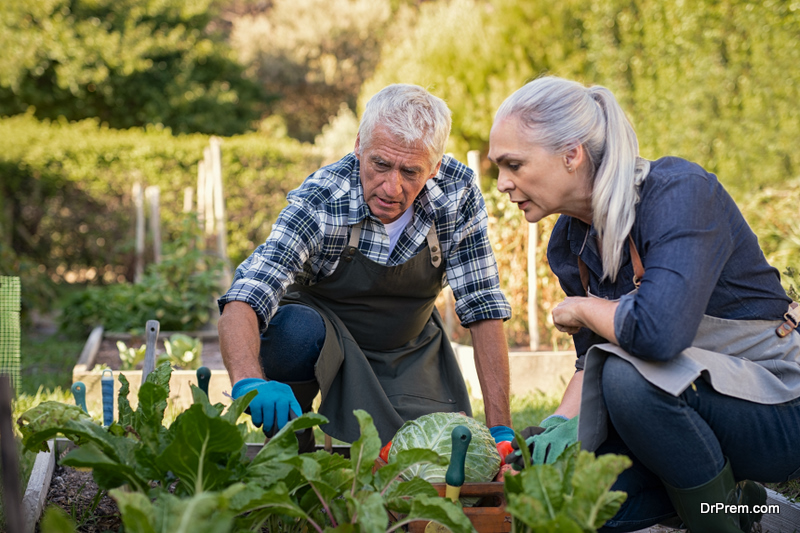 Another great way of starting eco-friendly eating is by maintaining your own kitchen garden. Using your kitchen garden, you will produce your basic ingredients, such as tomatoes, herbs, etc.
Another great way of starting eco-friendly eating is by maintaining your own kitchen garden. Using your kitchen garden, you will produce your basic ingredients, such as tomatoes, herbs, etc.
2. Try Going Vegan for a Day
Meat production requires many resources; therefore, you can support mother nature by going vegan for a day every once in a while. Leaving meat for a day won’t affect you a lot, but it will make a huge difference for society. So, for the greater good, try quitting meat for a day or two every month.
3. Consume Raw Foods Once a Week
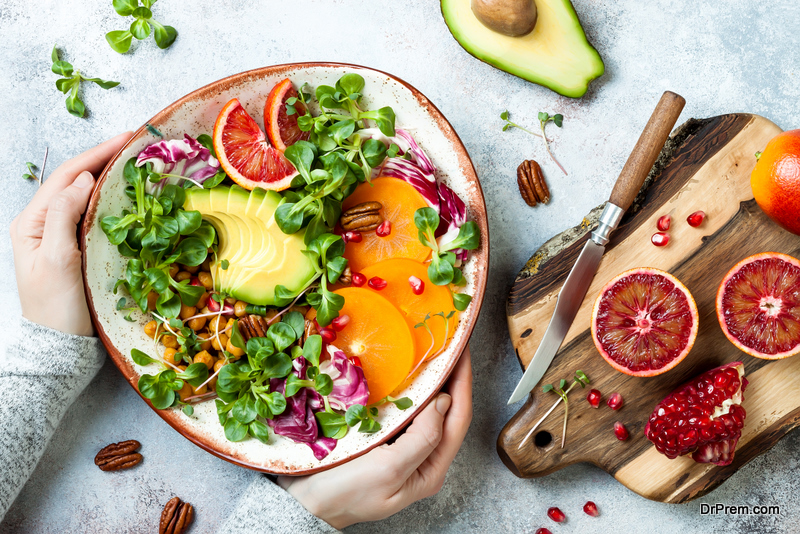 Whenever you cook, let it be in a microwave or on the stove, you contribute to pollution as well as your utility bills. Why not save a bit by eating raw once a week? Eating your food raw isn’t only pocket-friendly. Still, it’s also healthy as when you cook, you lose a lot of vital nutrients, whereas by consuming your food raw, you get to intake all of its ingredients.
Whenever you cook, let it be in a microwave or on the stove, you contribute to pollution as well as your utility bills. Why not save a bit by eating raw once a week? Eating your food raw isn’t only pocket-friendly. Still, it’s also healthy as when you cook, you lose a lot of vital nutrients, whereas by consuming your food raw, you get to intake all of its ingredients.
4. Grow Your Veggies
The best way of starting to eat healthy and eco-friendly is by growing your food. You can conveniently become an eco-warrior by planting everyday veggies in your home. Growing veggies doesn’t require any rocket science and is easy to care for. You can start by planting herbs, garnishing, chili’s etc. in pots in your home.
5. Replace Toxic Cookware
 Maybe you aren’t aware that Teflon and non-stick pans that you aren’t using any longer get toxic over time. The non-stick coatings on cooking utensils release toxic substances that are harmful to your health. Therefore, it is best to replace such cookware with cast iron, glass, or ceramic ones.
Maybe you aren’t aware that Teflon and non-stick pans that you aren’t using any longer get toxic over time. The non-stick coatings on cooking utensils release toxic substances that are harmful to your health. Therefore, it is best to replace such cookware with cast iron, glass, or ceramic ones.
6. Support Local Farmers
Eating local items and buying local produce is very environment friendly. On average, the ingredients that you use in your meals travel almost 1200-2500 km just to reach your plate. However, if you switch to the local product, you can save these transportation emissions. Additionally, the longer the food remains in storage, the more nutrients it loses. On the other hand, local produce takes almost 250 km to reach you, and it doesn’t have to stay in storage for long thus, the nutrients remain in it.
7. Don’t discard food waste
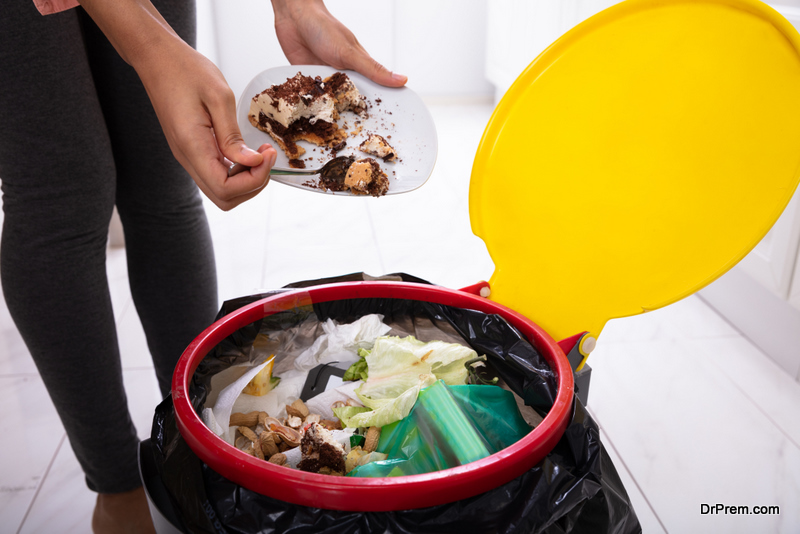 Are you aware that you can easily utilize your food waste in making compost? You can use your food scraps to create your compost that will help in the growth of your plants.
Are you aware that you can easily utilize your food waste in making compost? You can use your food scraps to create your compost that will help in the growth of your plants.
8. Go Organic
Try to use organic ingredients instead of artificial and processed ones. Organic ingredients aren’t only healthy, but they bring out the best flavor in foods as they don’t contain any harmful pesticides. Similarly, herbs such as white maeng da kratom are a vital component of Thai cuisine. If you want to improve your overall health, you should eat organic.
9. Opt for Sustainable Seafood
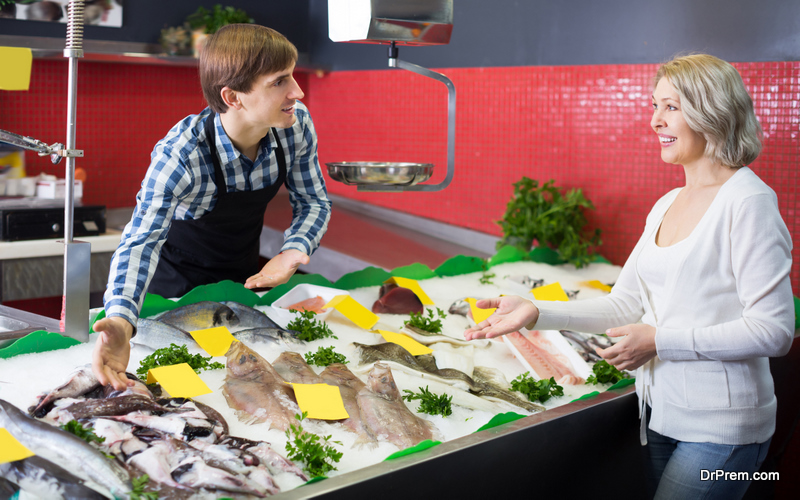 Everyone loves seafood. Who doesn’t want to relish those juicy and crispy prawns and tasty mussels? However, when you are shopping for seafood, go for sustainable species. If you go for exotic or rare ones, you will be contributing to their extinction. You must bear in mind that many types of fish are becoming depleted because of overfishing. Overfishing not only results in the endangering of that particular species, but it also disturbs the marine ecosystem. Therefore, you should think environment friendly and go for those seafood options that are easily sustainable.
Everyone loves seafood. Who doesn’t want to relish those juicy and crispy prawns and tasty mussels? However, when you are shopping for seafood, go for sustainable species. If you go for exotic or rare ones, you will be contributing to their extinction. You must bear in mind that many types of fish are becoming depleted because of overfishing. Overfishing not only results in the endangering of that particular species, but it also disturbs the marine ecosystem. Therefore, you should think environment friendly and go for those seafood options that are easily sustainable.
10. Follow the 3 Rs
Reduce, reuse, and recycle these 3 Rs that we all need to follow to keep our environment clean and green. Don’t just dump your household waste. Categorize it into different forms as per the ingredients and then put it in its appropriate bin. Similarly, try to reduce your ecological footprint by switching to reusable containers instead of disposable ones.
11. Prefer Herbal instead of Allopathic
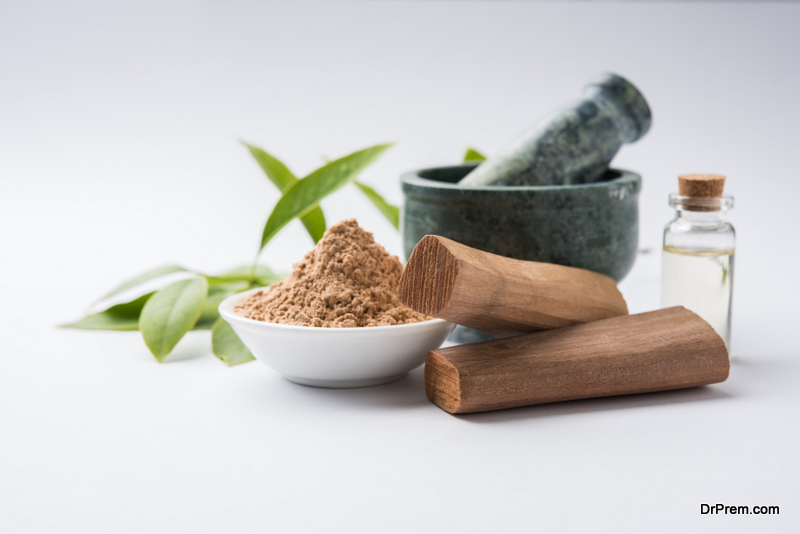 Likewise, when you’re in pain, go for herbal medicines rather than allopathic ones. Natural herbs such as white vein Borneo are quite effective in chronic pains such as arthritis. Likewise, using herbal medicines doesn’t produce any side-effects as conventional allopathic medicine creates.
Likewise, when you’re in pain, go for herbal medicines rather than allopathic ones. Natural herbs such as white vein Borneo are quite effective in chronic pains such as arthritis. Likewise, using herbal medicines doesn’t produce any side-effects as conventional allopathic medicine creates.
12. Use Food Leftovers to Create New Dishes
As you have become aware of how much of your food ends up in the garbage cans, its best to use it. Instead of wasting leftover food, use it to make new dishes. You can easily make stuffed pies, wraps, tortillas, quesadillas by using your leftover food as filling. Likewise, store your veggies properly and in time, so they aren’t spoiled. When you buy veggies and bring them home, try to wash them, cut them, and store them right away.
These are some easy and effortless ways that you can adopt to contribute to a greener, cleaner, and safer planet earth that is livable for us and our generations to come.
Article Submitted By Community Writer


